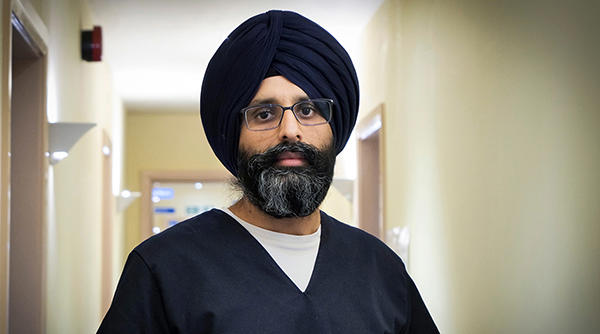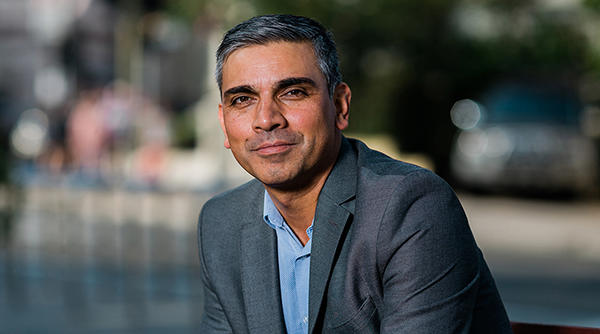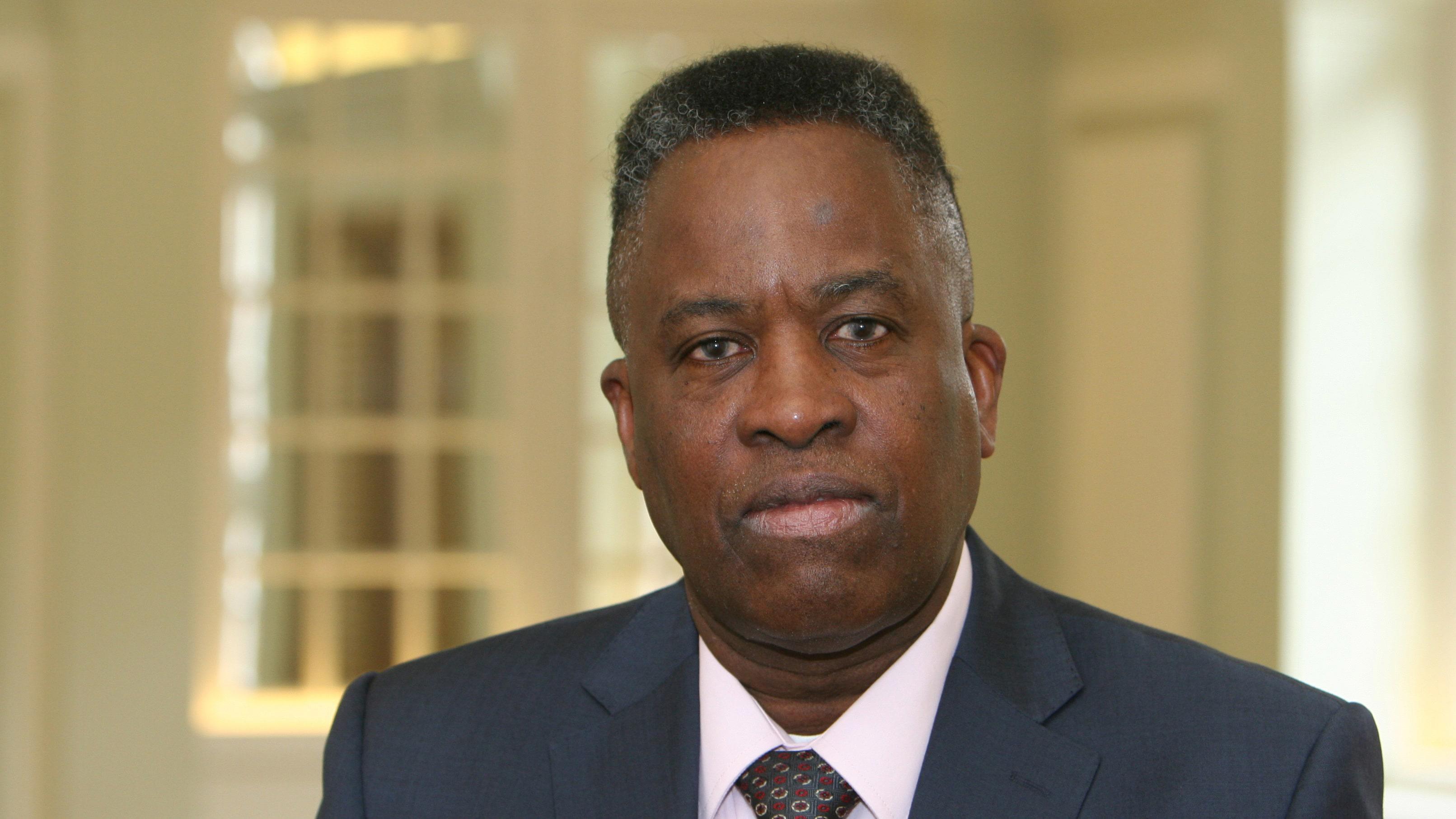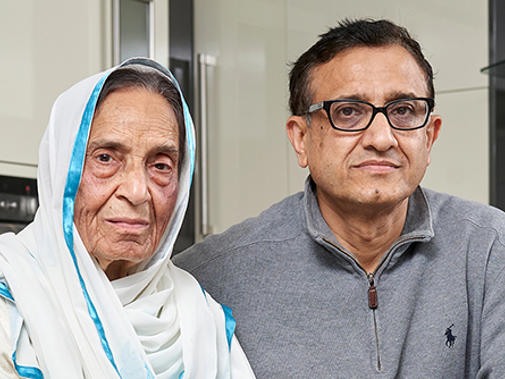‘It causes a huge amount of anxiety and distress. We [overseas doctors] live in a constant state of guilt for not being able to be with our parents when they need you. There have been colleagues of mine who have lost their parents and have not been able to see them in their last moments.’
This is GP Kamal Sidhu’s blunt assessment of the Home Office’s rules around ADRs (adult dependant relatives), the regulations which dictate how and whether overseas doctors working in the UK can bring older and infirm family members to live with them.
Having previously afforded a more lenient approach, the rules around ADR immigration were tightened considerably in 2012 as part of the then home secretary Theresa May’s so-called ‘hostile-environment’ policy.
Since 2012, foreign nationals looking to bring dependant relatives such as a parent or grandparent to live permanently in the UK, are required to not only prove their relatives require long-term care, but that they are unable to obtain suitable care in their relatives’ home countries.
Dr Sidhu, who is based in the north-east of England, has first-hand experience of this inflexible and often draconian system having sought, so far unsuccessfully, to bring his parents to the UK from India.
‘When I made the decision to come to the UK in 2003, the rules were a lot more flexible,’ he explains.
‘It was not as difficult to bring parents over here, as long as we were willing to sponsor them. Since 2012 it is next to impossible to bring relatives to the UK.’ Sadly, Dr Sidhu’s case is far from unique.
Families separated
 SIDHU: 'My parents are at that age now where you do expect them to have health problems'
SIDHU: 'My parents are at that age now where you do expect them to have health problems'
Since its implementation, the tougher requirements set for overseas citizens seeking to bring adult relatives to live with them in the UK has had a dramatic effect.
A 2016 Home Office review into the effect of the policy change showed that, while a total of 2,325 applications had been granted between April 2010 and March 2011, this number had fallen to 189 successful applications in 2013 and just 135 the following year.
Dr Sidhu is a member of a joint taskforce comprised of BAPIO (the British Association of Physicians of Indian Origin), APPNE (Association of Pakistani Physicians of Northern Europe) and the BMA, which is set on challenging the existing ADR rules.
In a letter to home secretary Priti Patel, all three organisations have warned that the rules are effectively leading to the permanent separation of older relatives from their children, something that is having ‘a considerable impact on the mental health of our members’.
Dr Sidhu says he knows of friends and colleagues who have made the decision to leave the UK and relocate to places such as the USA and Australia where immigration regulations concerning family dependants are not as strict.
‘I don’t switch my phone off during the night in case there’s an emergency call,’ he says.
‘You worry at all hours about getting a phone call. My parents are at that age now where you do expect them to have health problems.
‘Sometimes I wake up in the morning and wonder why I’m continuing with this status quo.
‘You think about going back [to India] but you’re torn between your families, your children live here and go to school here in the UK and you have your career here.
You’re faced with essentially having to uproot all of that.
‘There is a huge psychological impact on doctors through this policy,’ he adds.
‘Unless the rules are amended, the UK will continue to be a less preferred destination to overseas doctors than other countries.’
Under stress
 WARIKOO: Left for Australia
WARIKOO: Left for Australia
The threat of overseas doctors quitting the UK owing to the obstacles they encounter when trying to bring their parents to the country, is well founded.
A survey jointly conducted by BAPIO and APPNE found that 91 per cent of respondents who had sought and been unable to bring their relatives to live with them, reported feelings of anxiety, stress and helplessness as a result of their predicament.
Sixty per cent told the survey these feelings were having an adverse effect on their working lives, while a staggering 85 per cent admitted they had considered either returning to their home countries or relocating to one with more flexible regulations on ADR immigration.
A year ago, The Doctor reported on the story of Indian-born consultant child psychiatrist Nishchint Warikoo, who had spent years working in the UK, and had become a British citizen in 2014.
After months of battling the Home Office to win the right to bring his mother to the UK, Dr Warikoo concluded that he had no other choice than to quit his role in the NHS and relocate himself and his family to Australia.
Legal challenge
East Midlands-based consultant endocrine surgeon Irfan Akhtar faced a similar situation when he sought to have his mother live with him and his family in the UK.
Mr Akhtar explained how his mother, a UK-trained paediatrician, had spent the initial years of her retirement living comfortably in Pakistan.
As she grew older and frail, and with Pakistan generally lacking the kind of community-based social care services seen in the UK, he realised that being separated from his mother was only going to become more difficult and eventually untenable.
When his mother began to develop dementia, Mr Akhtar realised that it was no longer possible for her to live independently and knew that she would need to come and live with his family.
The legal challenge was an extremely depressing experienceDr Akhtar
Despite demonstrating that his mother’s care would be funded privately in the UK and how she could not receive the care she needed in Pakistan, his application was refused.
He challenged the decision, with the resulting appeals process lasting almost two years before finally a court ruling overturned the Home Office’s original decision, allowing Mr Akhtar to bring his mother to the UK.
‘I was one of the lucky ones,’ he says.
‘It [the legal challenge] was an extremely depressing experience at the time and there are so many other people in my position where the outcome is not a happy one.’
False economy
Mr Akhtar says he feels the requirements on applicants to prove that bringing an older family member to the UK would not pose a burden to taxpayers are set to an almost unattainably high standard.
He adds that even when applicants, such as himself, are able to fully demonstrate that they have the financial resources to fund any and all of their relative’s care needs, this fact could then be used against them.
‘The counter argument was that if you have money here to support your mother, why don’t you buy her a house in Pakistan and put her there?’ he says.
In its letter to Ms Patel, the BMA, BAPIO and APPNE highlight how the common argument used against applications to bring a dependant relative to the UK on the grounds that doing so would pose a burden to the taxpayer, was based on a false economy.
It adds that not only would the majority of doctors be prepared to cover the costs of their relatives’ care, the punitive rules on ADR immigration risk forcing highly skilled and experienced doctors to consider leaving
the NHS.
It is an argument Dr Sidhu and Mr Akhtar agree with, and believe is not taken seriously enough by the Government.
‘The parental issue often comes at a stage in your career where you are fairly senior,’ Mr Akhtar says.
‘I had to tell my trust that I was applying for residency for my mother, and that if I failed the only option I would have was to put in my resignation.
‘In my case, I am only one of two consultant endocrine surgeons in the whole of the East Midlands and if I had had to go off [and leave the UK] the effect would have been tremendous.’
‘That [taxpayer burden] argument feels quite insulting in some ways,’ says Dr Sidhu.
‘It overlooks the fact that the country has imported overseas trained doctors that taxpayers here have not funded and secondly ignores the fact that many doctors are willing to give an undertaking committing to ensuring their relatives will not be a financial burden.
‘We need to start looking at those countries that have a far more humane approach to these rules.’
You think about going back to India but you’re torn between your familiesDr Sidhu
In its letter to the Home Office, the BMA has made clear that the importance of ending the restrictions around ADR has received additional urgency following Brexit, with European Economic Area nationals working in the NHS also set to now be subject to them, following the end of freedom of movement.
The letter warns that doctors from Europe could join their colleagues from other overseas nations in either leaving the UK or choosing not to come to the country, because of restrictions on bringing family members to come and live with them.
Empathy needed
 JOHN: Government doesn't show loyalty to overseas doctors
JOHN: Government doesn't show loyalty to overseas doctors
Terry John, who until recently chaired the BMA international committee, says reversing the existing rules around ADR immigration would make a significant difference to improving the lives of overseas doctors already in the NHS, while also making the UK a more attractive destination for future international medical graduates.
‘Choosing to come to the UK to serve in the NHS demonstrates a tremendous level of commitment,’ he says.
‘It is therefore baffling the Government, which so often talks of its desire to attract the “brightest and the best” to this country, continues to not reciprocate the loyalty shown by overseas staff by taking a more flexible and empathetic approach to the issue of dependant relatives.’
For Mr Akhtar – who describes the successful end to his appeal as like the lifting of a big weight and black cloud from his life – being able to be close to his mother has had a dramatic effect on her and his family’s lives.
‘I flew to get her to the UK, she took her time to settle in the new environment,’ he says.
‘Over time, the change in her personality has been phenomenal, she is more interactive and has built bridges with the grandchildren and feels involved in their development. She manages her walk in the garden and has made a few friends in the neighbourhood.
‘Mum still has her health issues but her approach in managing them is more positive, [and] as a family we feel a lot more stable and are more focused on our children and profession.’
Listen to an interview with Dr Sidhu and Dr Akhtar

